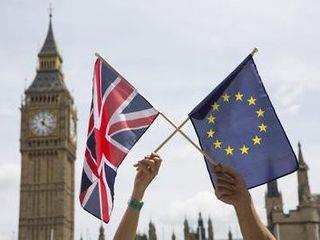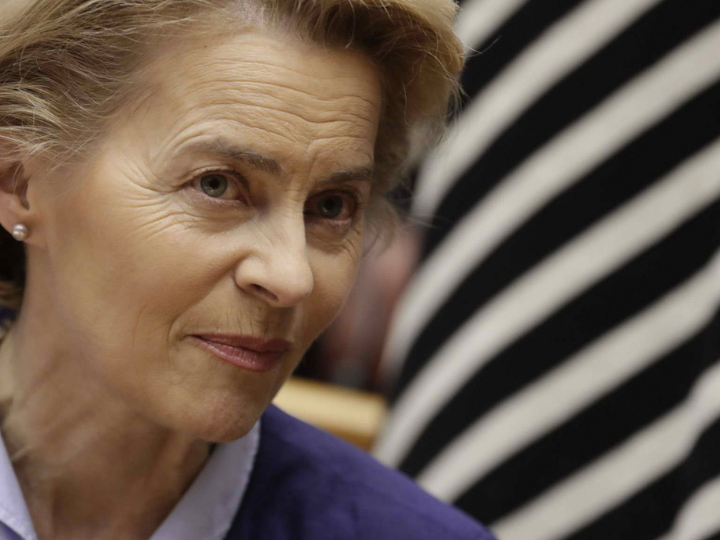
It’s people, not technology, that will decide the future of work
By: EBR | Friday, May 10, 2019
Nothing is written in stone. Technology itself will not determine the way forward. It’s all about the choices that governments, businesses, workers and their unions and societies as a whole make

Longer lifespans are changing the shape of the world’s population pyramid
By: EBR | Friday, May 10, 2019
The world is in the midst of a notable period of demographic transition

The economics of mobile money: Harnessing the transformative power of technology to benefit the global poor
By: EBR | Friday, May 10, 2019
Mobile money has transformed the landscape of financial inclusion in developing and emerging market countries, leapfrogging the provision of formal banking services

Wants Germany to get rid of NATO?
By: N. Peter Kramer | Friday, May 3, 2019
Is NATO dying? Walter Russel Mead, leading columnist of the Wall Street Journal, says yes

Nordic banks, scandals and reputation rebuilding
By: EBR | Thursday, May 2, 2019
The story is simple: the most important Nordic banks are involved in a Baltic money laundering scandal that saw hundreds of billions of Russian-tainted euros flooding the international market in the absence of proper supervision and risk assessment

Taiwan can help countries around the world achieve universal health coverage by 2030
By: EBR | Thursday, May 2, 2019
At a time when achieving universal health coverage has never been more urgent and important, Taiwan has actively sought to share its first-rate experience in healthcare reform

7 skills every leader needs in times of disruption
By: EBR | Tuesday, April 23, 2019
In our current times of great change, people are questioning what it means to be a leader and rethinking what we expect from those chosen to lead

How Strategic Alliances Can Strengthen Investigative Journalism
By: EBR | Tuesday, April 23, 2019
Collaborations between journalists and NGOs forge new avenues for mutual value creation – and social impact

Don’t underestimate the power of the fintech revolution
By: EBR | Friday, April 19, 2019
History is replete with people’s failures to anticipate the impact of technological change. Are we making the same mistake with financial technology (fintech)?

Fostering Tomorrow’s Agile Self-Learners
By: EBR | Friday, April 19, 2019
Students in Greece and their parents tend to ask the same questions when they investigate options for higher education

We need a reskilling revolution. Here’s how to make it happen
By: EBR | Friday, April 19, 2019
As the world faces the transformative economic, social and environmental challenges of Globalization 4.0, it has never been more important to invest in people

It’s time for a break from Brexit, Trump and Europe’s populists
By: EBR | Tuesday, April 16, 2019
It’s been a tough few months. Everyone is exhausted, nerves are frayed, patience is running out. No one is at their best

After Israel elections, Netanyahu can form his fifth government
By: EBR | Monday, April 15, 2019
Israel elected Netanyahu for the fifth time in 23 years. The most impressive achievement is, that he won 36 Knesset seats as the man about to be charged in three corruption cases

Calling all meps: Think big to defy populist scare-mongering
By: EBR | Tuesday, April 9, 2019
Giles Merritt calls on mainstream candidates for the European Parliament to challenge populist rivals by focusing on the approaching ’generation wars’ due to Europe’s ageing

The only metric of success that really matters is the one we ignore
By: EBR | Friday, March 22, 2019
On a blustery March day five years ago, I locked arms with my mother and walked into a church in Maplewood, New Jersey to bury my brother. Bagpipes played “Amazing Grace.”

The Credibility of German Multilateralism
By: EBR | Tuesday, March 19, 2019
Berlin’s consistent calls to protect multilateralism in the wake of President Donald Trump’s verbal attacks on the post-1945 institutions often ring hollow

7 surprising and outrageous stats about gender inequality
By: EBR | Friday, March 15, 2019
Around the world, the achievements of women are being celebrated on International Women’s Day, which began back in 1911. But the day also highlights the work that remains to be done in order to achieve gender parity

The web is 30 years old. What better time to fight for its future?
By: EBR | Friday, March 15, 2019
Today, 30 years on from my original proposal for an information management system, half the world is online. It’s a moment to celebrate how far we’ve come, but also an opportunity to reflect on how far we have yet to go

Why we're living in the 'Asian Century'
By: EBR | Friday, March 15, 2019
When we look back from 2100 at the date on which the cornerstone of an Asian-led world order began, it will be 2017. In May of that year, sixty-eight countries representing two-thirds of the world’s population and half its GDP gathered in Beijing for the first Belt and Road Initiative (BRI) summit

Springtime for Strongmen
By: EBR | Tuesday, March 12, 2019
The world’s authoritarians are on the march—and the West helped pave the way



 By: N. Peter Kramer
By: N. Peter Kramer
